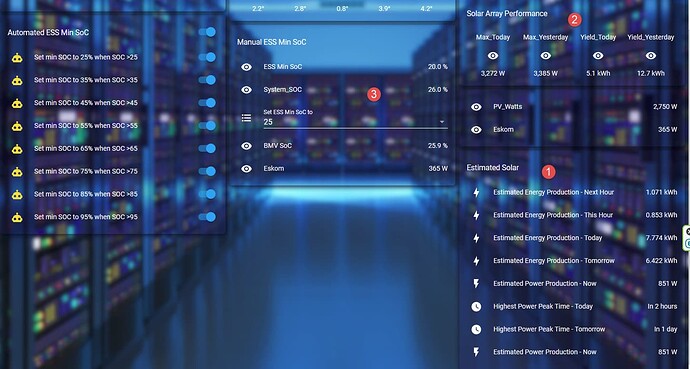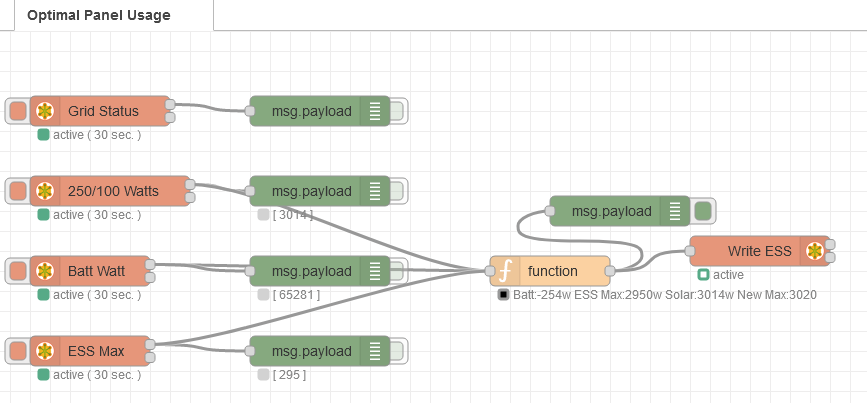This is going to keep people busy.
Already started running it yesterday. Although, to be honest, I had all that data on an HA Dashboard already. It still early days so I’m curious to see where they go with it.
Listening to their podcasts it seems like they want to do quite a lot with this. Will be a nice central meeting point for lots of different energy devices, and I’m shit at Lovelace so it helps if most of the dashboards are already there. That’s being said it seems that I’m crap at statistics too, will work on it when I find some time over the weekend.
Potentially silly question: Does it work with modbus victron feeds?
From my (brief) looks yesterday, it looked like you needed to use one of their integrations, but there wasn’t a Victron one. I might have missed something though.
This is something the community can really help with. I have it on my own wishlist since January already, not getting to it…
While people are getting good use of what’s available right now, it seems like the devs are going to be spending a lot of time on this to making it a major feature. Battery support isn’t in yet but is on the roadmap. I can imagine many optimisations and breaking changes taking place but that being said its one of the easiest ways to get a solar production forecast.
Still, it is a step in the right direction!
How big is Home Assistant compared to its competitors?
And is Raspberry Pie the preferred platform?
The Pi is a easy and cheap option and works well, but it seems that when you start having plenty of inputs the Pi start to beome too slow to handle it all. Then people go from something larger (PC based).
I like the Pi for it is very power efficient compared to a PC, so a Pi4 with 8Gb ram is my preferred option.
Yeah, so I upgraded my HA … o man, it broke ALL the Modbus connections to Venus.
Painstakingly I had to figure out with the cryptic comments on Google … 
Got it working again, and added the new feature - 1, wanted to see how it compares to 2 - the MPPT.
3 is where the SOC is pushed up in 10% increments starting from 20% every morning.
And Node RED that controls the inverter wattages to match the panel production … and not “push” the batteries “unnecessarily”, but rather spread their use out over 24 hours.
Its one of the top 3 out there. Depending on whose reviews or comparisons you look at, HA would be in the top 3 every time. The only other 2 competitors worth mentioning in my opinion is openHAB and Domotics.
In most cases the PI would be sufficient and the preferred platform. I ran mine on a PI4 4gig, but ended up moving it to a IntelNuc that i wasn’t using anymore.
Biggest single concern with a Pi is running it from an SD card - most SD cards do not last long with continuous random access writing to it. I corrupted 3 or 4 SD cards before I switched to an external SSD at which point it became very stable - if a bit slow. This was a Pi 3b+.
Running in VM on a i5 Ubuntu host now.
Hyper-V on Win10.
I gave this Every monitoring page a try. Ended up ditching it. Couldn’t get it to work nicely with the sensors I have - so I reverted to my own custom energy panel.
Started with HA on RPi4 8gb with SD - moved to same + SSD for improved stability…so far so good!
Absolutely. I went with the HA Blue about 8 months ago and it’s been solid. This has built in eMMC storage. Running any device like that off SD Card or USB flash drive is asking for trouble. I’m only retiring it now because I’m consolidating all the bits of hardware into VMs with a high availability server.
When started tried VM but got too complicated for the Mech Eng… Might try again in future because like the idea of it being in the Cloud. Comms with devices from outside of LAN however adds complication.
I’ve been running Vmware ESXi on a Raspberry Pi 4 8GB off of a USB3 SATA SSD for a few months now. ESXi boots directly from the SSD. The Pi is running four virtual servers at the moment as well as my home assistance instance.
This solution has been rock solid with absolutely no down time. Highly recommended.
Battery support now added.
Not the most stable release for all

